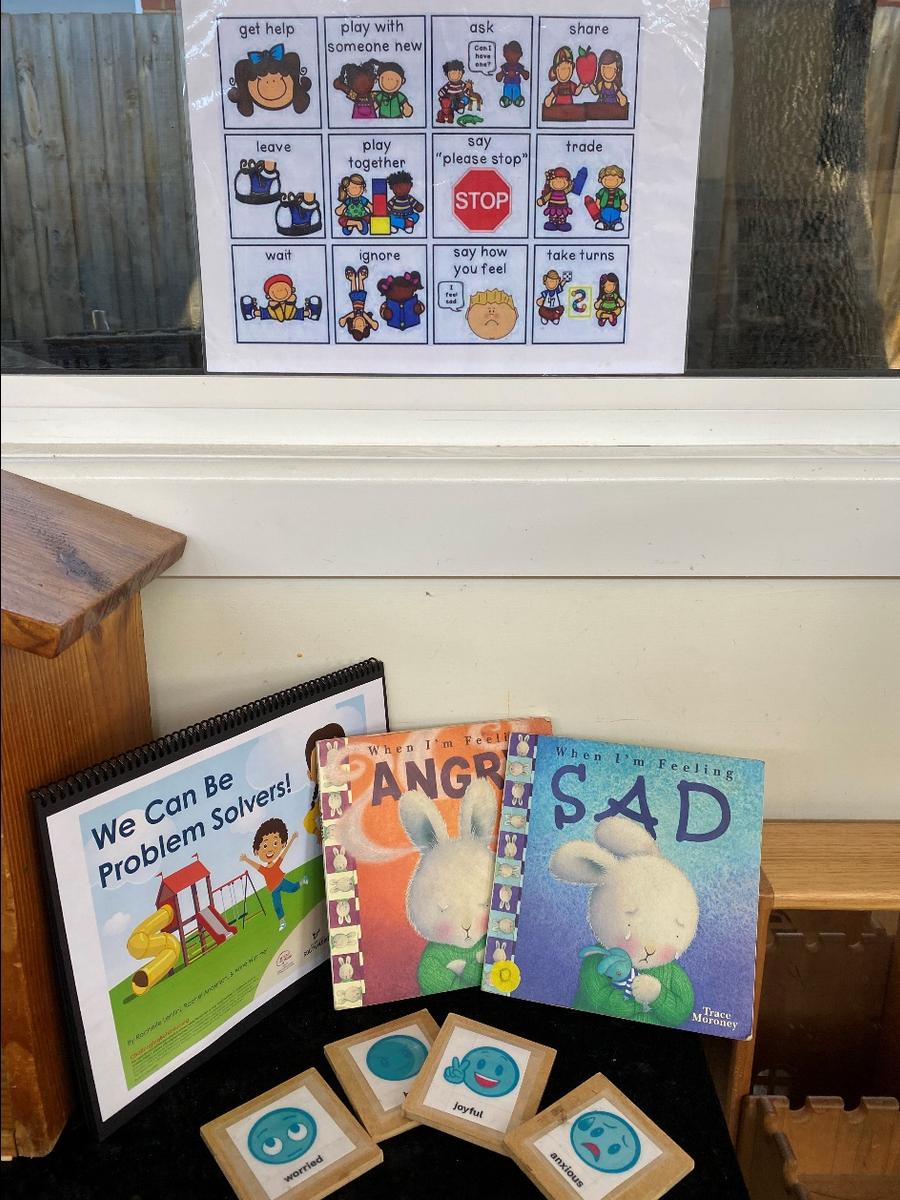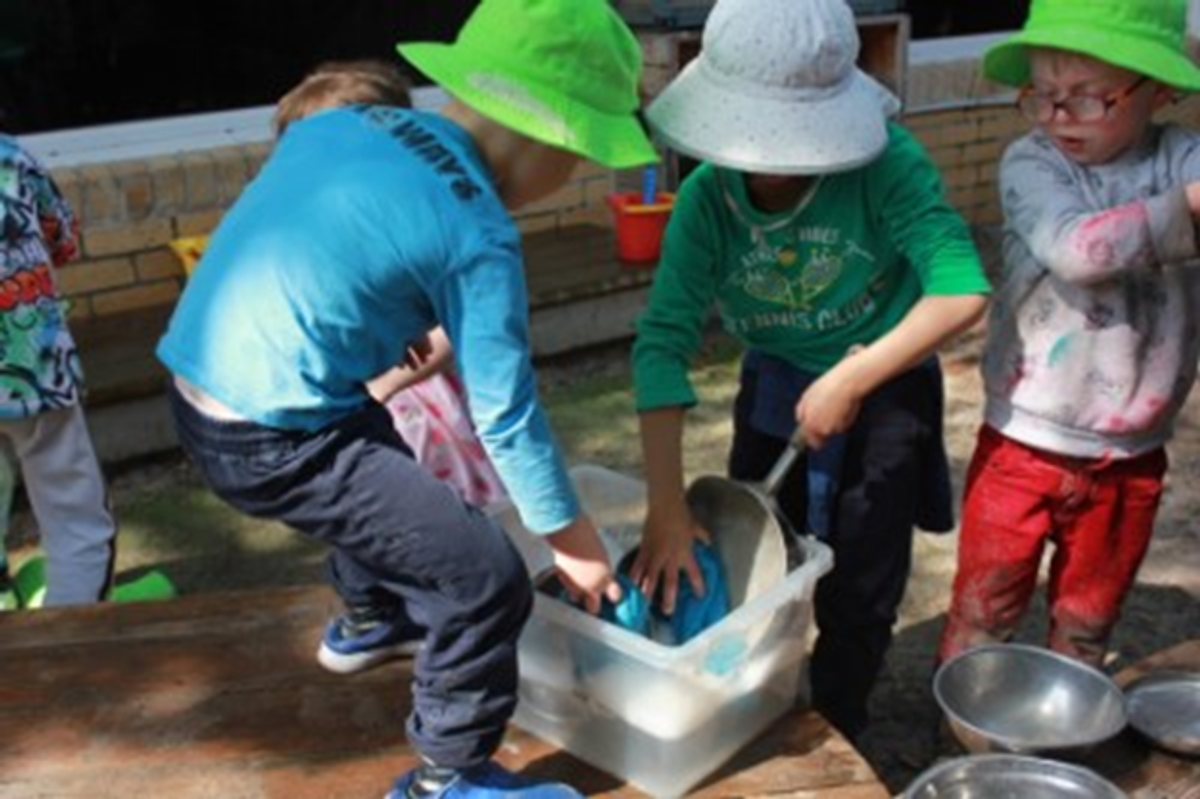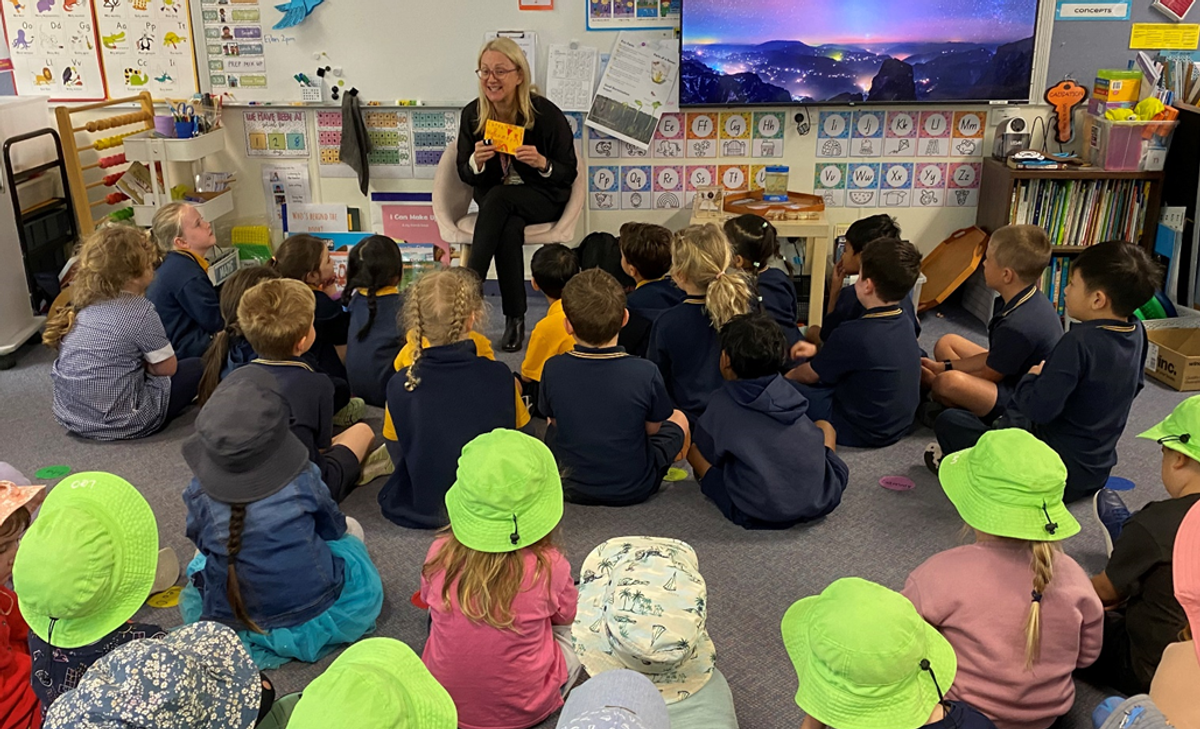Glen Education Caulfield South

Transition: Developing lifelong skills
By Liz, Lillia and Lara, Early Childhood Educational Team
At Glen Caulfield South Kindergarten we see each child as unique, active and engaged in their learning. We help the children develop lifelong skills to use as they transition throughout life. It is said that “it takes a village” and when it comes to transition to school, the children, families and early childhood professionals are at the core.
We prioritise developing respectful relationships and partnerships to ensure high expectations for every child. (Transition: A positive start to school, Victoria State Government, 2017). We aim to foster resilient attitudes and behaviour by building children’s confidence, sense of wellbeing and security.
The ‘feelings’ collection of books are one of the strategies we use to help children identify and manage their emotions and learn self- regulation. This helps children learn how feelings are experienced in their bodies.
Through discussions, stories and role play the children become stronger in recognising these emotions and choosing to do something that will help them feel calm. Emotion cards and problem- solving visual poster are frequently used resources available for the children to access throughout the day.
One of the important skills children need to build before going to school is independence.
Children love to take on responsibilities and enjoy doing things independently, a valuable part of their growth that fosters confidence and self-reliance. Engaging children in routines, offering choices, and guiding them through problem-solving builds their autonomy. Simple tasks, like helping with chores, nurture a sense of accomplishment and responsibility that supports their development in meaningful ways.
Recently, on a warm day, the children spent so much time and energy helping to give our kindergarten a big clean-up. Educators talked through the steps of wetting the cloth and then folding and twisting to wring out the water. Once the children had taken in this information, we were able to stand back and observe the children independently managing the process.
The level of enthusiasm of the group led the teaching team to discuss the benefits of this type of learning through play at kindergarten. In fact, these chores such as resetting activities, picking up toys or packing away lunch boxes and cleaning tables with sponges are embedded into our daily routines.
When parents talk to educators about school transition we talk about a lot of different areas. We encourage children to be responsible for their own belongings, this includes lunch items and clothing and packing their own bags. We talk about friendships and how a child is responsible for their own body and how your body might be feeling. We encourage children to express their feeling through different ways including sign language. Children will engage in many different activities to develop their fine and gross motor skills. We encourage children to choose activities that they would like to do at kindergarten and talk about their ideas during our meeting times.
It has been a busy start to term 4 as teachers, parents and children contribute to the transition statements that will provide the prep teachers with valuable information relating to each child. Reciprocal visits give the opportunity for the children to meet their prep teachers in a supportive environment.
In Term 4, one of our children's groups was warmly welcomed by the prep teacher and students at Caulfield South Primary School. The prep children showed us a butterfly that had recently emerged from its cocoon, and we all gathered outside to see it released into the natural environment. We then went on a walking tour giving the children a chance to see the play areas and other classrooms so they will become familiar with the school spaces. We shared a fun playtime with the prep children, and it was lovely to see our kindergarten children playing cooperatively, developing their social skills and ready to make new friends.
This learning helps the children develop positive associations to school by easing anxieties about school and contribute to a smoother transition ahead. I asked Bronwyn, the prep teacher what she felt was important to facilitate a positive transition. Bronwyn emphasised the importance of ‘maturity’ and when children develop independence skills and self -regulation they are more ready to learn in the structured school environment.
Together with families, we are dedicated to ensuring each child's smooth transition to the world and equipping them to embrace it with curiosity, confidence, and joy.
Outcome 3: Children have a strong sense of wellbeing.
Children who have a strong sense of wellbeing develop a range of social skills and dispositions. They learn to be comfortable in a range of settings that are part of their lives.
Children learn how to express and manage their feelings and develop self -reliance. As children progress and mature, their social skills and resilience increase. Children experience wellbeing as they develop a sense of achievement, and as they learn to be flexible and adapt to new environments and events. (EYLF, 2022)



